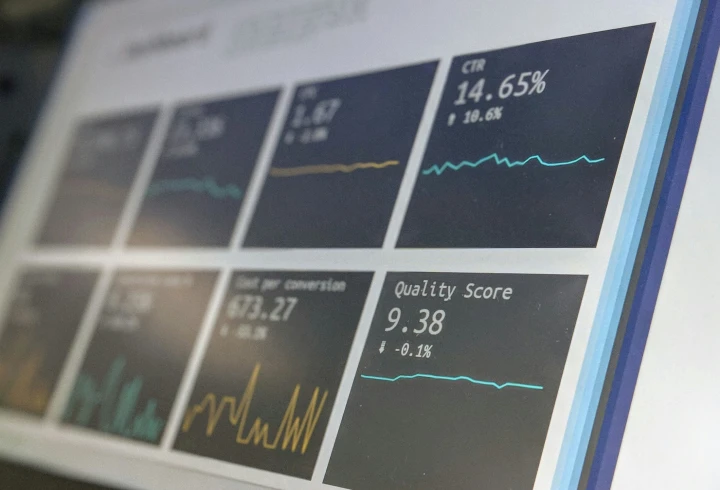Would you believe that in the 21st century, ‘Data’ is just as valuable of an asset as property or cash?
We live in a generation that cannot make informed decisions without taking into account the enormous amounts of data that are relevant.
Business strategies aren’t created without a thorough examination of available information.
Industries and governments are both fueled by large amounts of data.
Interpreting consumer patterns, behaviors, preferences, etc. enables businesses to create improved products and better-targeted marketing campaigns
Here comes the challenge: how do we extract large amounts of data while simultaneously protecting individuals’ privacy?
One of the most discussed subjects in the world of Big Data is the Balance of Innovation and Privacy.
What is Big Data?
At its core, big data refers to the vast, complex repositories of information that modern society and technology produce.
From online browsing histories to GPS location data to medical records, we are constantly generating colossal digital footprints.
What distinguishes big data is its high volume, high velocity, and high variety across structured and unstructured data types.
The sheer scale is staggering; by 2025, it’s estimated that 463 exabytes of data will be produced globally each day.
That’s the equivalent of over 212 million DVDs worth of data per day. This exponential data proliferation is fueled by unstoppable technological forces: the Internet of Things, artificial intelligence, social media, and our increasingly digitized world.
On its own, this raw data holds little value. The true power of big data lies in data analytics—extracting valuable insights, recognizing patterns, and making predictive decisions that drive innovation.
Businesses can leverage big data to optimize operations, understand customers with precision, forecast market behaviors, and design smarter products and services.
Data has been hailed as the “new oil” powering our modern economy and the competitive battleground where winners and losers will be decided.
Those who can effectively harness and capitalize on their data assets will enjoy huge strategic advantages over industry laggards. The big data revolution is here, and companies simply cannot afford to be left behind.
The Expanding Data Universe and Why It Matters
This tidal wave of information represents unparalleled opportunities across industries to derive valuable insights, predict trends, and drive innovation.
In healthcare, data analytics can improve disease prevention and treatment outcomes. In retail, companies leverage buyer data to provide highly personalized shopping experiences. Every sector is undergoing a data-driven transformation.
While harnessing data’s power is now essential for competitiveness and growth, there are significant risks to not adapting.
Businesses that fail to develop robust data capabilities will struggle to keep pace with more analytically sophisticated competitors.
Data Privacy as an Ethical and Legal Obligation
As data grows exponentially, so do ethical and legal obligations around data privacy and protection.
The European Union’s General Data Protection Regulation (GDPR) and the California Consumer Privacy Act (CCPA) are just two of the most high-profile data privacy laws being enacted globally to protect consumer rights.
These regulations reflect heightened public concerns and expectations around data privacy.
Violating data privacy laws and ethical standards can have severe consequences: costly litigation, regulatory penalties, brand damage, and most critically, an irreparable loss of consumer trust.
Simply put, consumer data is a company asset that must be safeguarded and leveraged responsibly.
This obligation poses tricky ethical challenges around finding the right balance.
How can companies maximize data’s innovative potential while respecting privacy?
How much data sharing is acceptable, and what constitutes true consent and transparency?
High-profile missteps by companies like Facebook, Google, and Equifax underscore what’s at stake when they get it wrong.
Strategies for Ethical Data Innovation
Despite the inherent tensions, integrating rigorous data ethics doesn’t have to be an undue constraint on progress and innovation.
Embracing ethical data practices is quickly becoming a brand and competitive differentiator in today’s climate of consumer data skepticism.
Leading organizations are adopting an “ethics by design” model, embedding data privacy and ethics as foundational principles from the ground up.
They’re taking a cross-functional approach, with legal, data science, security, and ethics teams all collaborating to develop holistic data governance frameworks and protocols.
These include implementing robust data security practices, enforcing strict access controls, and adhering to data minimization principles.
They empower customers with full transparency about what data is collected and how it’s used, giving them control over their data.
And they utilize advanced privacy techniques like anonymization, encryption, and differential privacy to protect individual identities.
Cutting-edge companies are also exploring new external data-sharing models that expand their data access responsibly.
They’re building trusted external partnerships and data collaboratives that pool different data sources together using ethical approaches.
Crucially, they’re fostering a culture of ethics and accountability through intensive data ethics training.
Every employee, from the C-suite to frontline workers, must understand data privacy obligations and ethical decision-making approaches.
Big Data Ethical Practices
Addressing the key ethical considerations outlined is paramount for responsible big data practices:
Privacy: Rigorously safeguarding individual privacy must be the bedrock ethical obligation.
This demands stringent data governance, extensive de-identification and anonymization protocols, strong access controls, and clear limitations around acceptable data use cases.
Privacy by design and default must be embedded into all data systems and processes.
Discrimination and bias: The risk of perpetuating unfair bias and discrimination through flawed datasets and algorithms represents a major ethical pitfall.
Proactive bias testing, adopting inclusive data practices, and having robust human oversight are critical for mitigating these harms.
A diverse, multidisciplinary team of data ethicists can help identify and root out encoded biases.
Transparency and accountability: ethical data use requires full transparency into how personal information is collected, processed, and utilized; there are no institutional black boxes.
There must be clear accountability models delineating who is responsible for ethical data stewardship and avenues for raising concerns over misuse.
Comprehensive data ethics training cultivates an organizational culture of accountability.
Security and data breaches: As data custodians, companies have an ethical duty to implement rigorous cybersecurity protocols to prevent data breaches that could compromise sensitive personal data.
Strict access controls, encryption, continuous monitoring, and incident response plans are vital data ethics obligations.
Consent: Individuals should be empowered with meaningful options to control their personal data and provide full, explicit consent for its use.
User-friendly privacy dashboards and consent flows enable people to make informed choices over how their data gets shared and leveraged—a tenet of ethical data autonomy.
Data ownership: grappling with the thorny ethical questions around data ownership rights is crucial.
While companies legally own much of the data they collect, applying an ethical lens of data stewardship—treating data as something borrowed, not owned outright—can foster more responsible data governance.
Long-term considerations: We must look beyond short-term data practices to consider the broader societal impacts of ubiquitous data collection and the application of predictive analytics, AI, and surveillance technologies.
Protecting digital rights, individual freedoms, and democracy itself should be an ethical north star.
Holistically addressing these ethical focus areas through rigorous frameworks and cross-functional accountability lays the groundwork for harnessing big data’s potential as a tremendous force for progress and innovation, not just a source of problems.
Ethical data use is the ultimate competitive differentiator.
Conclusion
We’re all pretty familiar with how large-scale data works. Big Data gets collected, analyzed, and processed.
But how to do it in a moral and responsible way is the question here. The study of ethical concerns surrounding Big Data is termed ‘Big Data Ethics’.
Issues like individual privacy, data security, fairness, and even accountability must be considered while making use of data on a large scale.
Big Data Ethics specifies guidelines and principles revolving around the handling of data so that the benefits of data-driven innovation are not compromised and, yet, the rights of individuals are protected.
We now have innumerable resources to guide us through ethical and moral practices. It’s time we led the way in the right direction.





